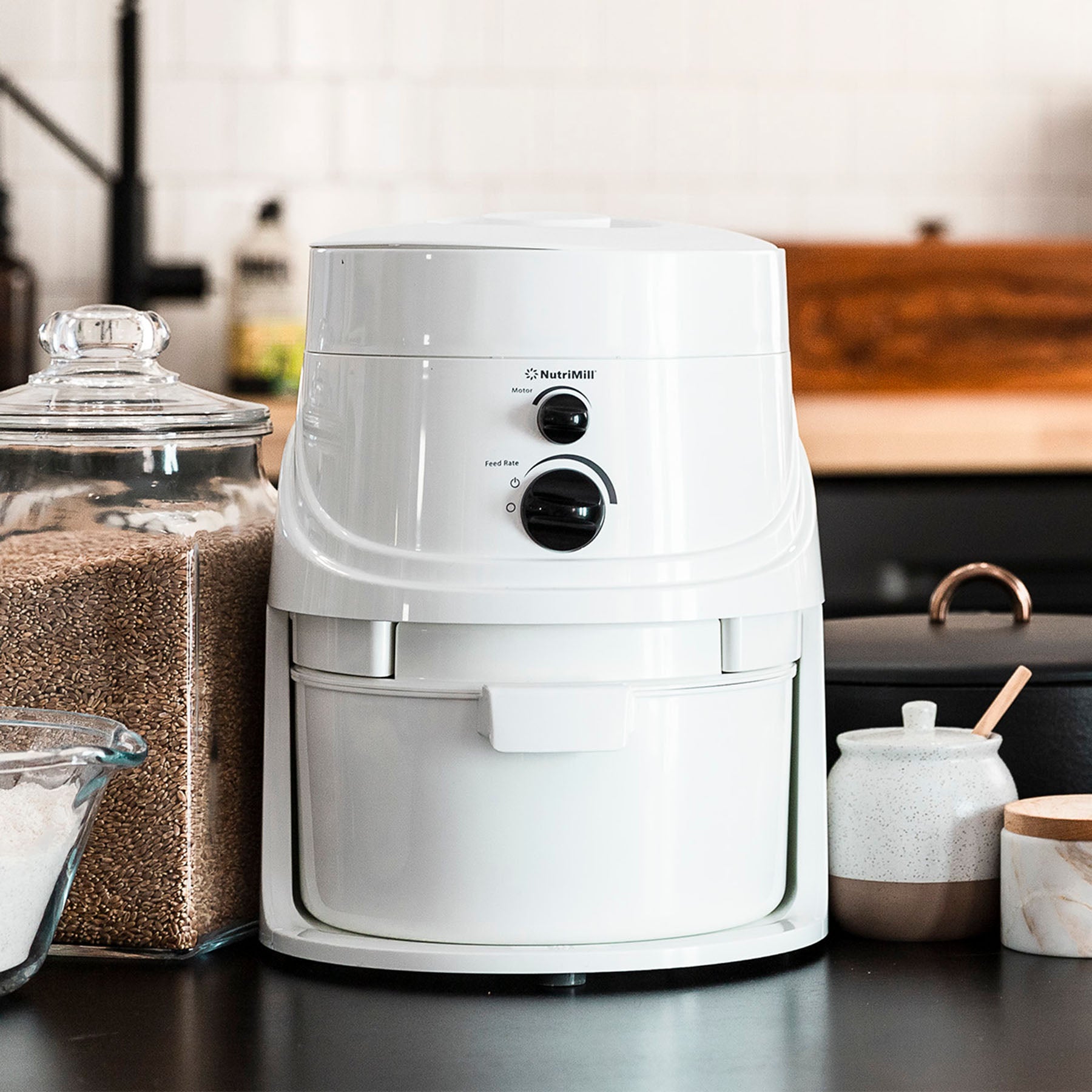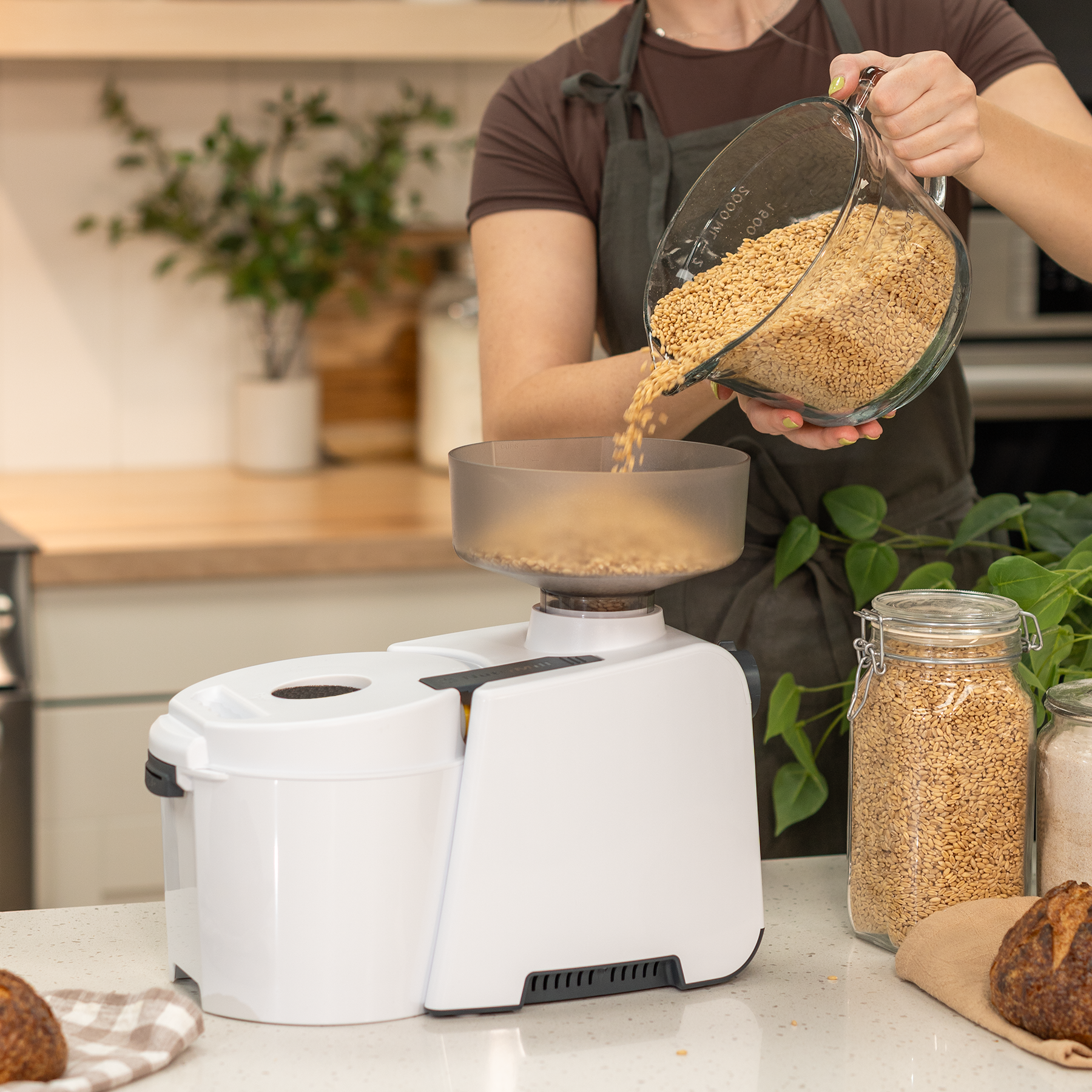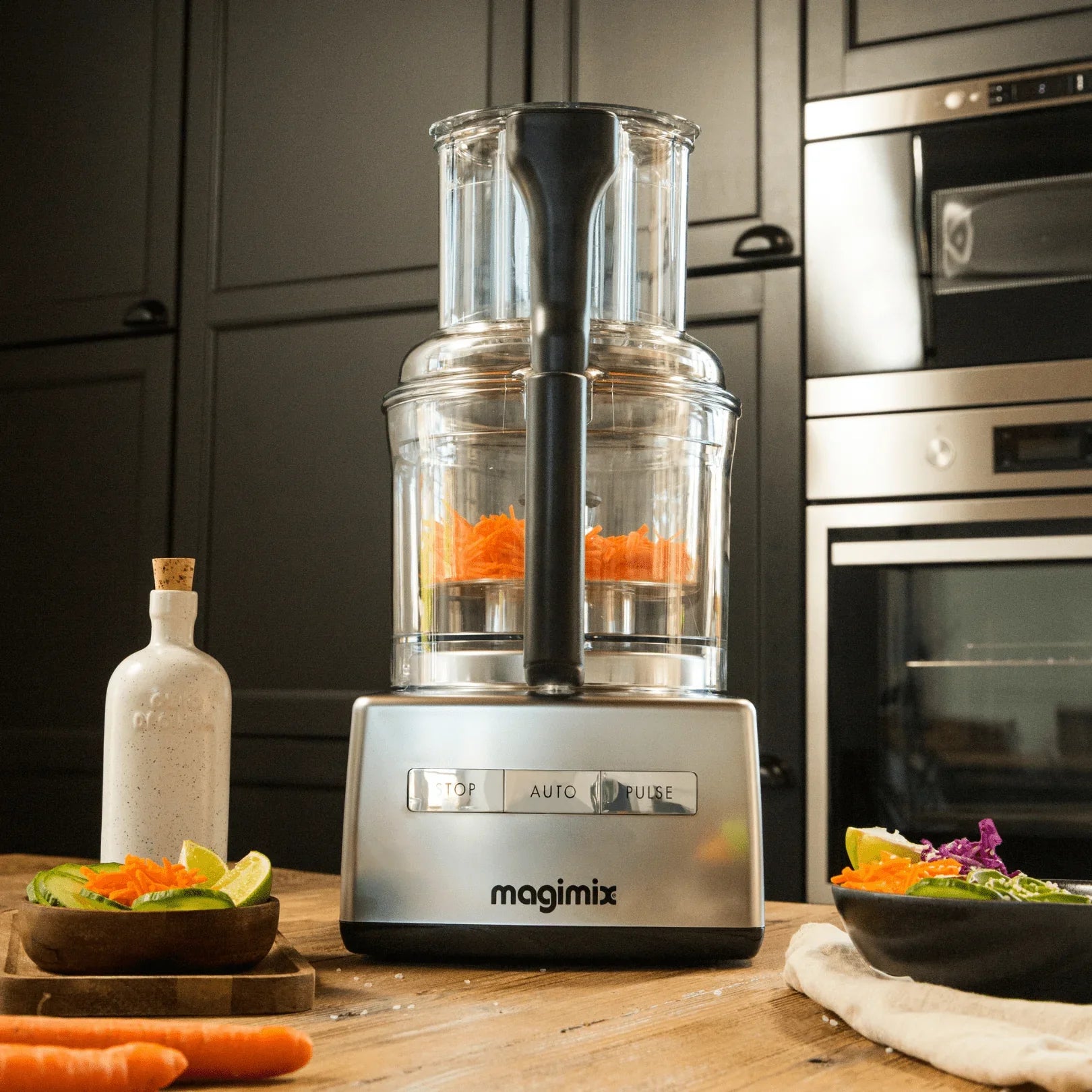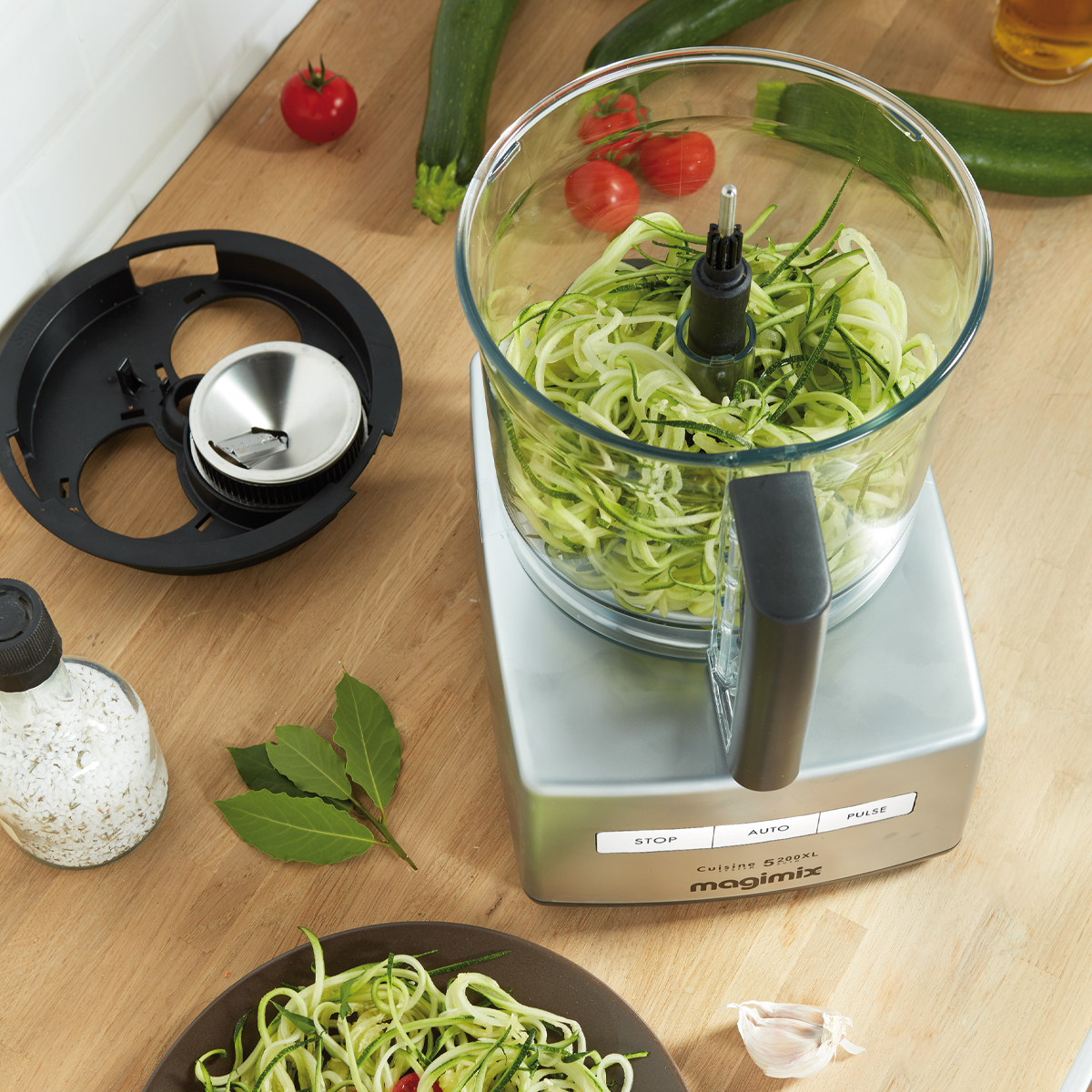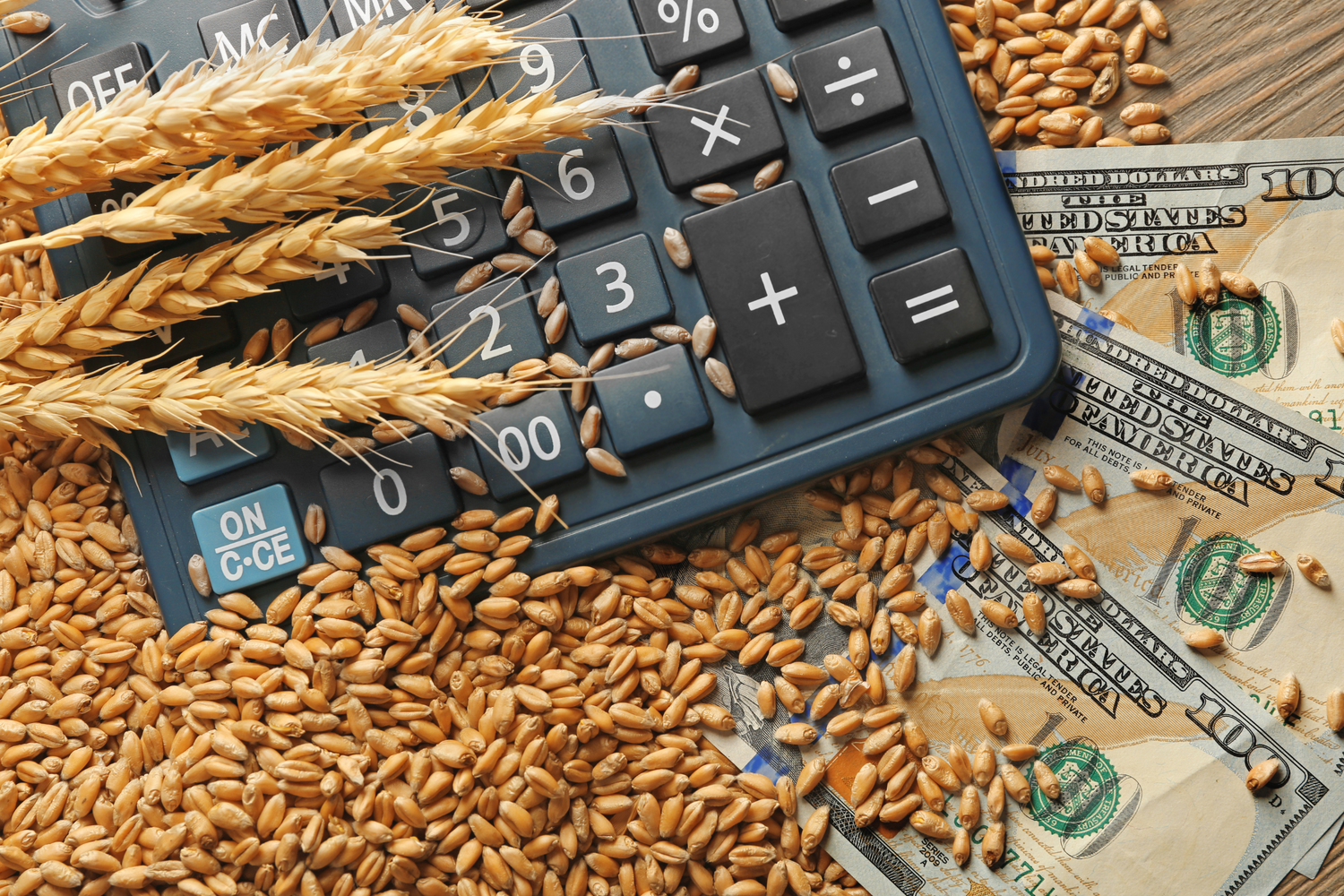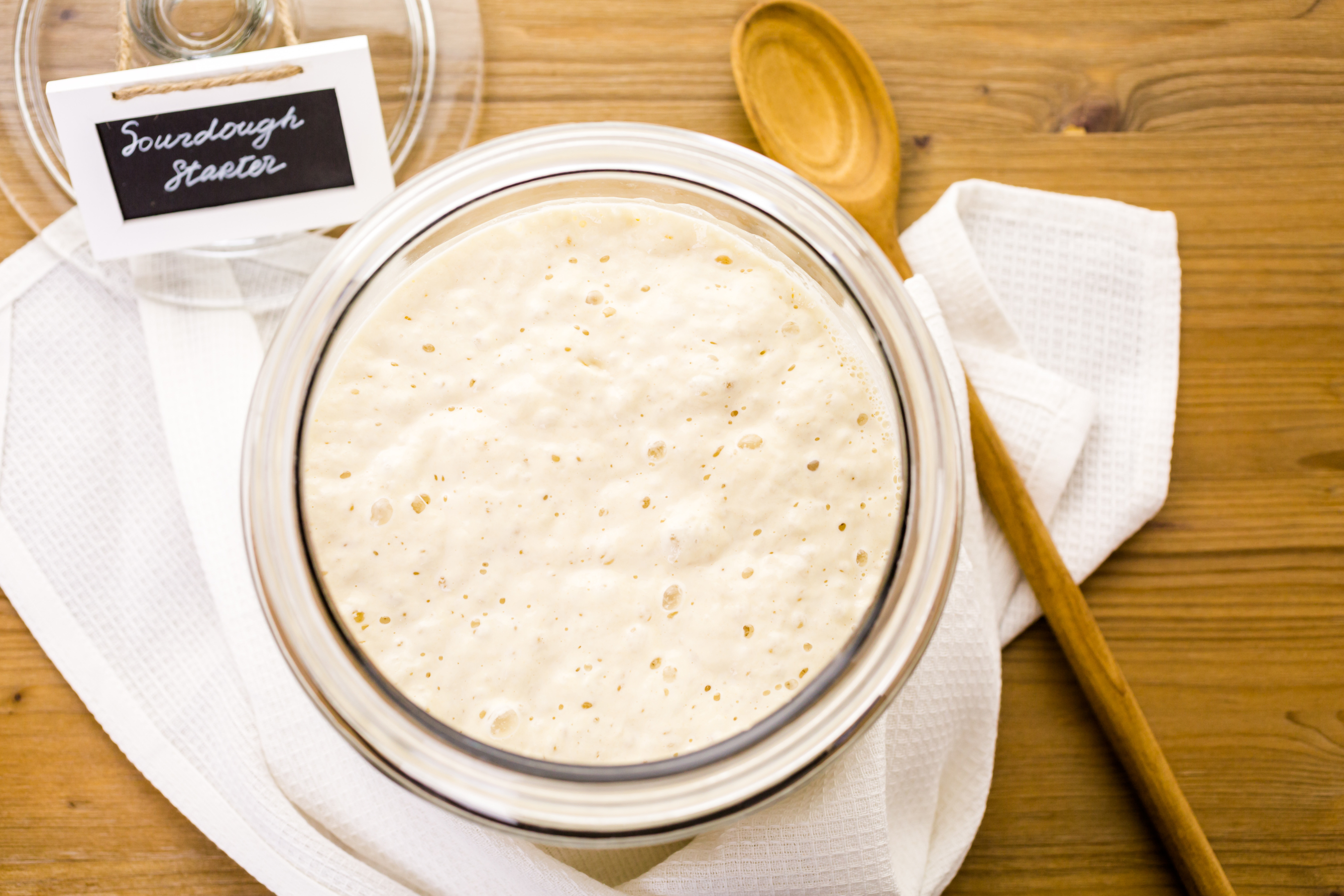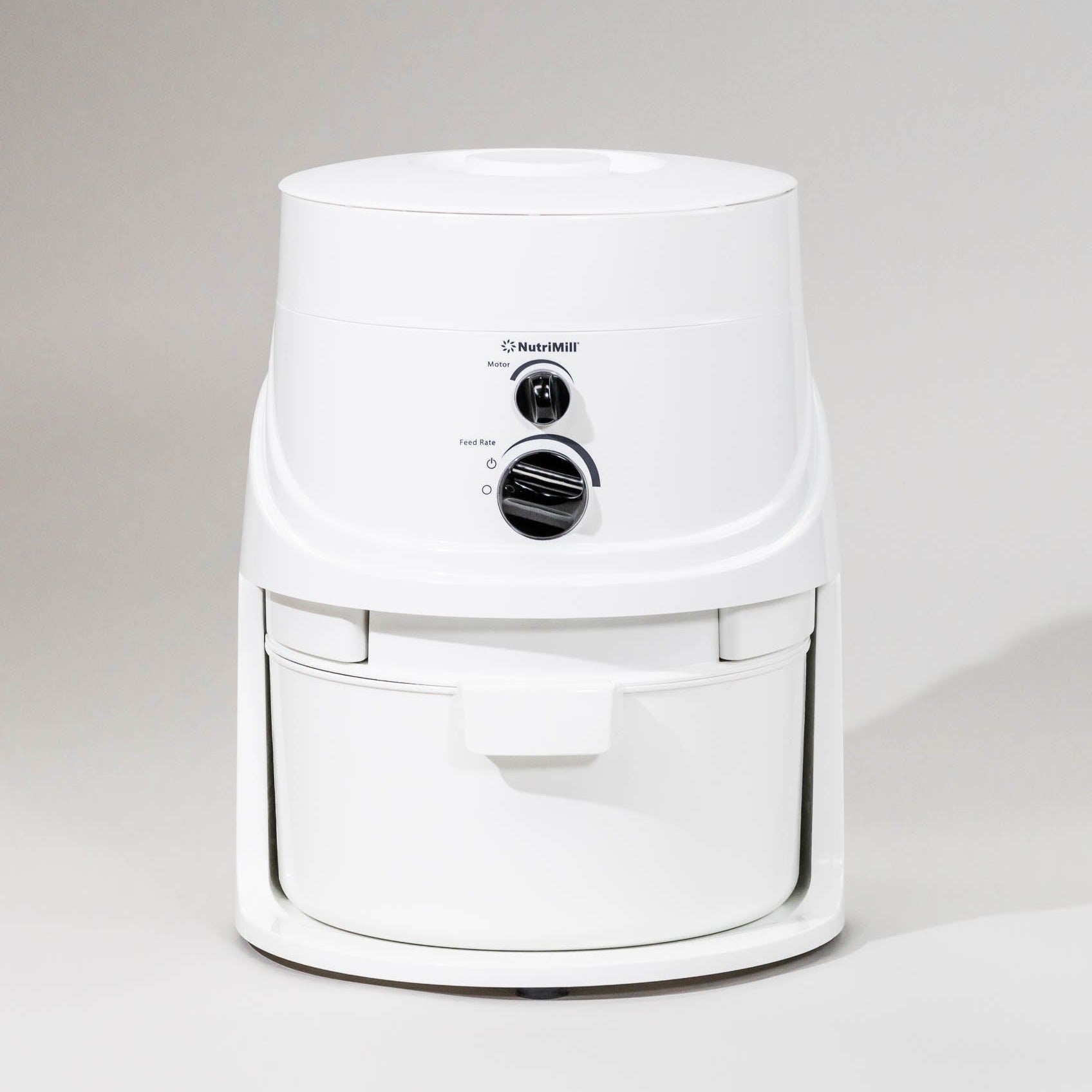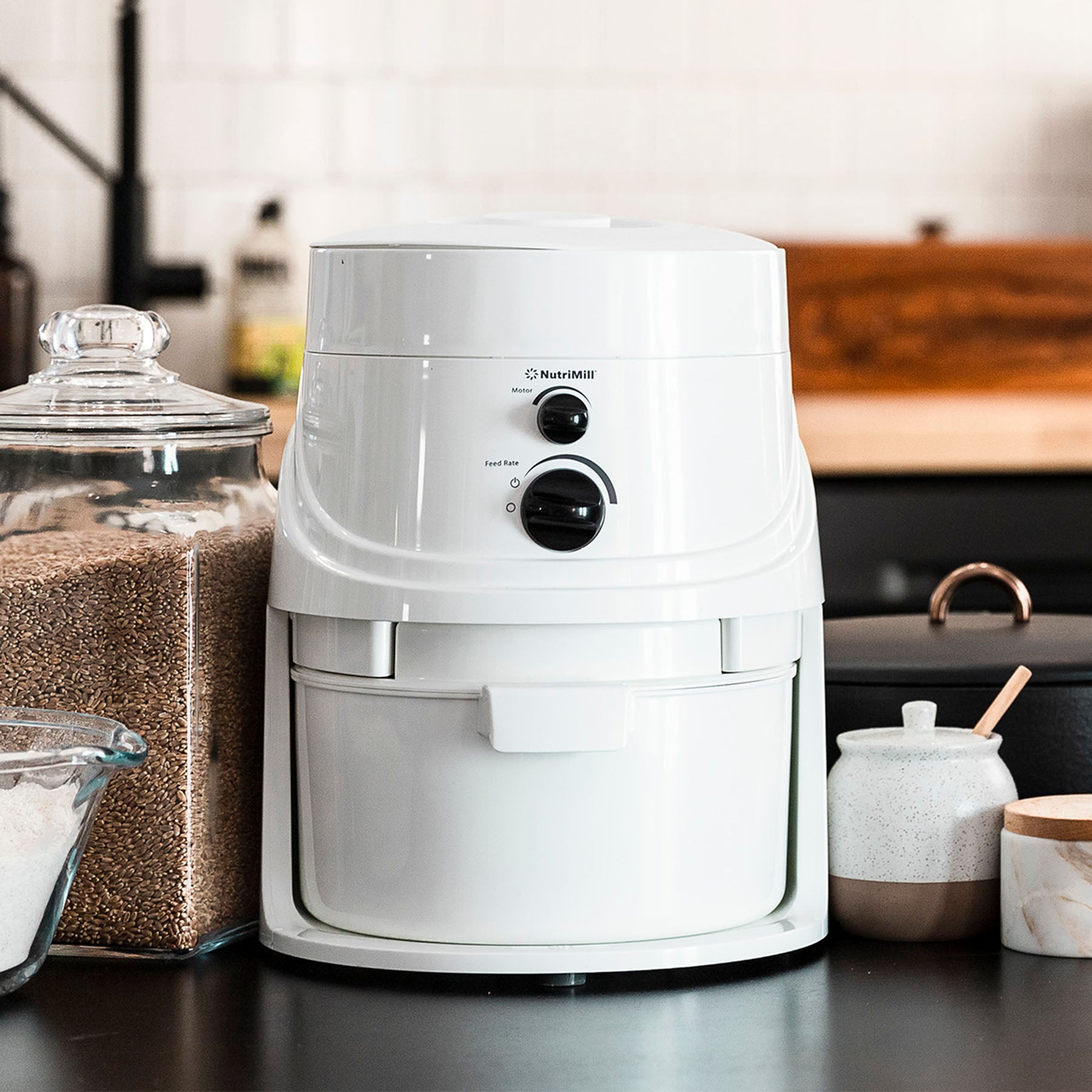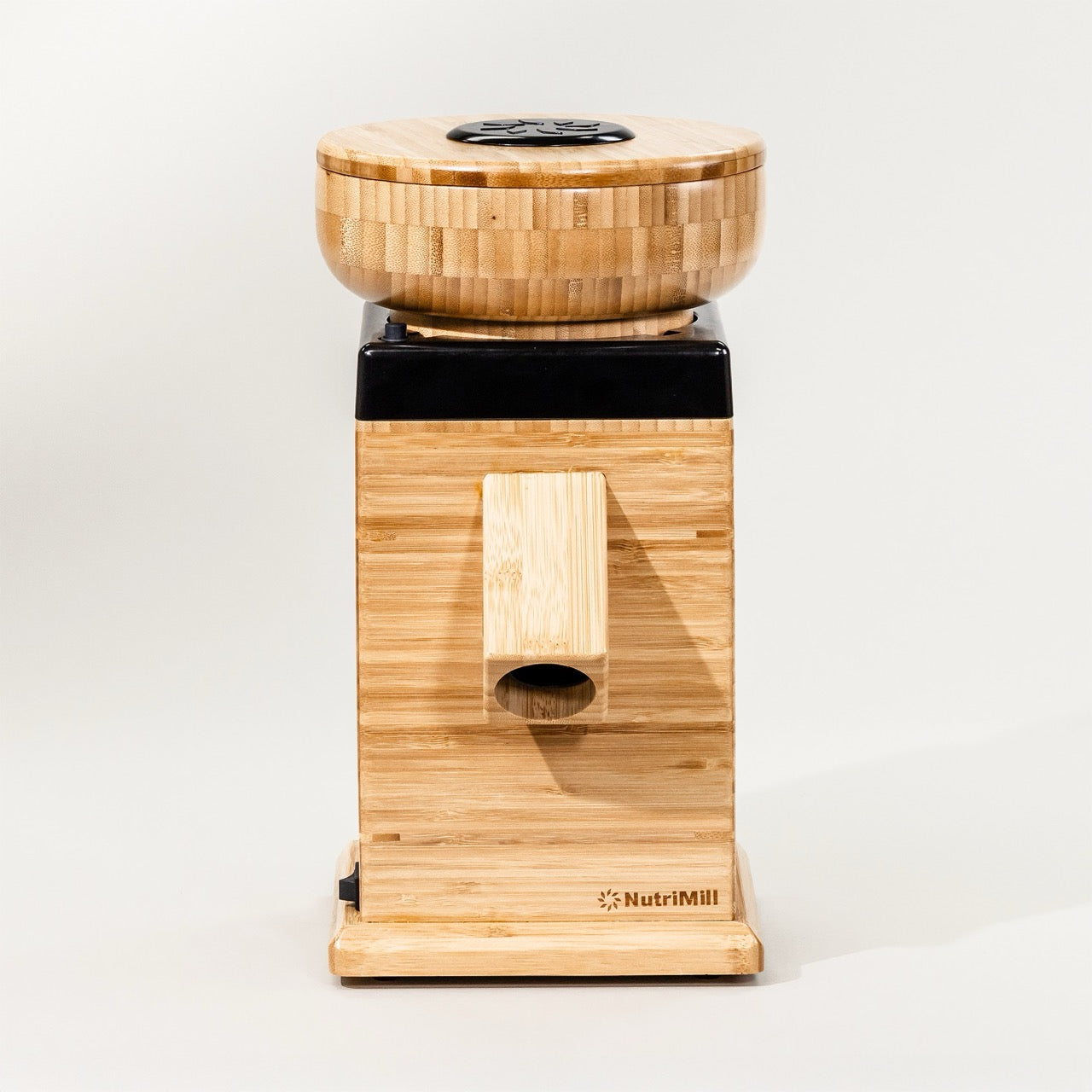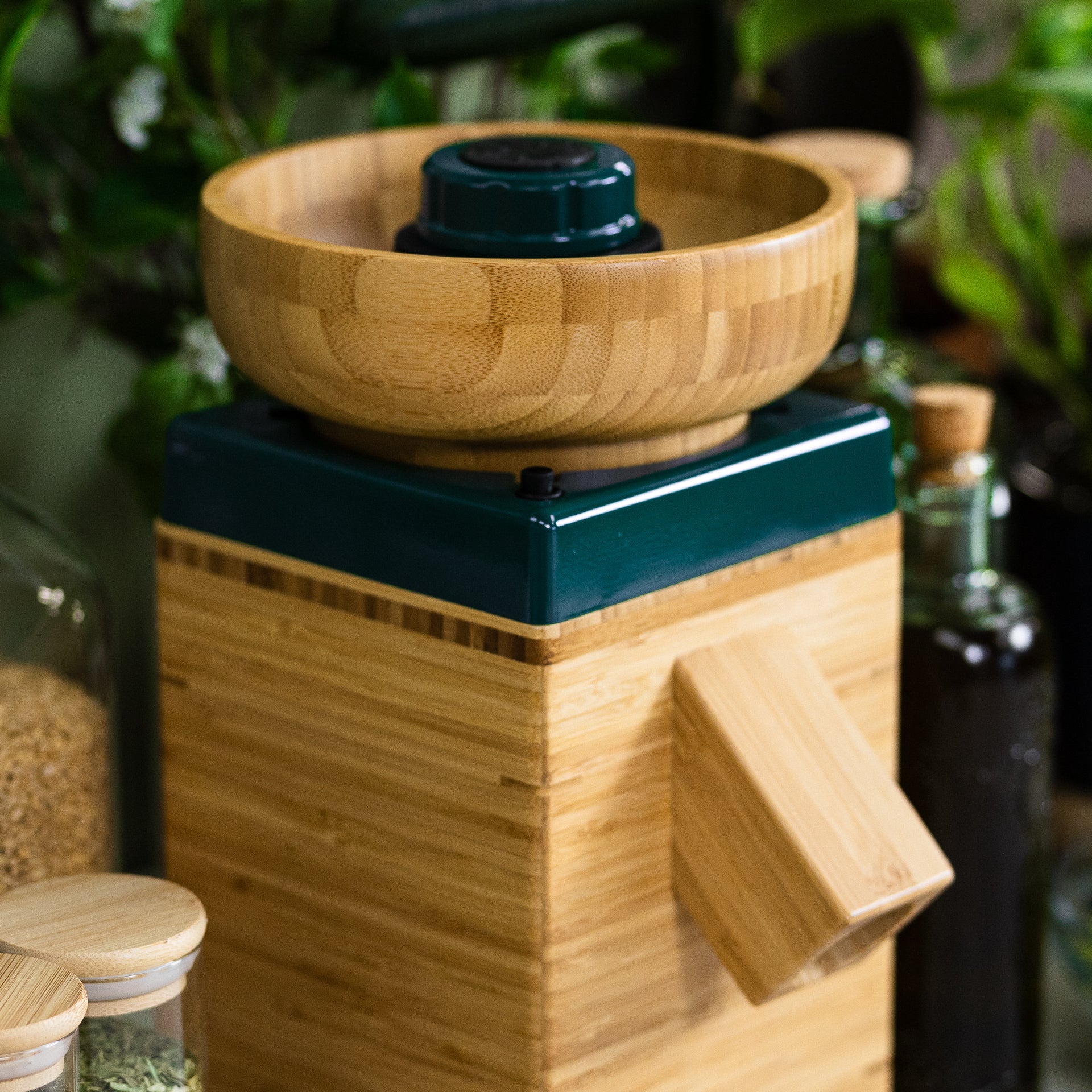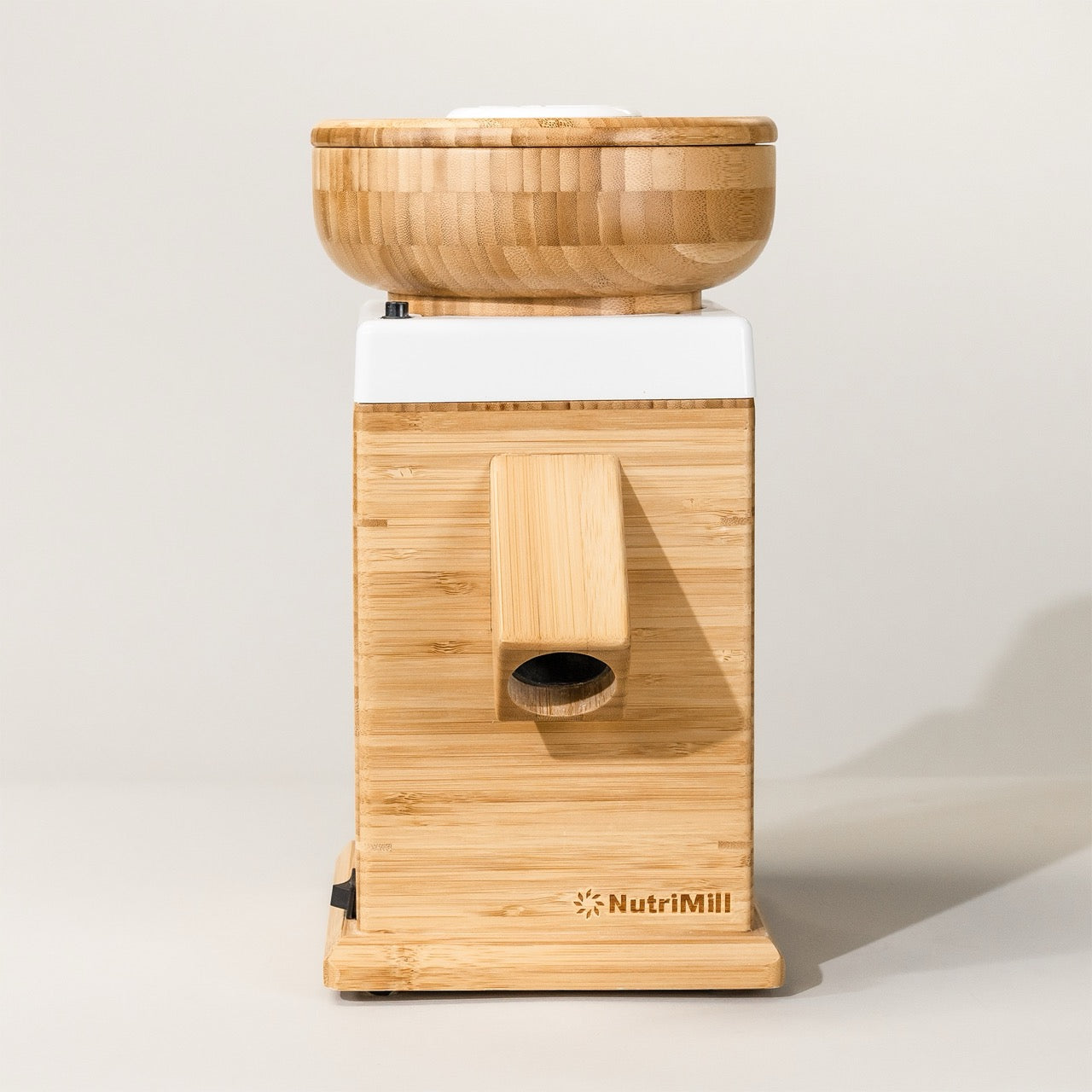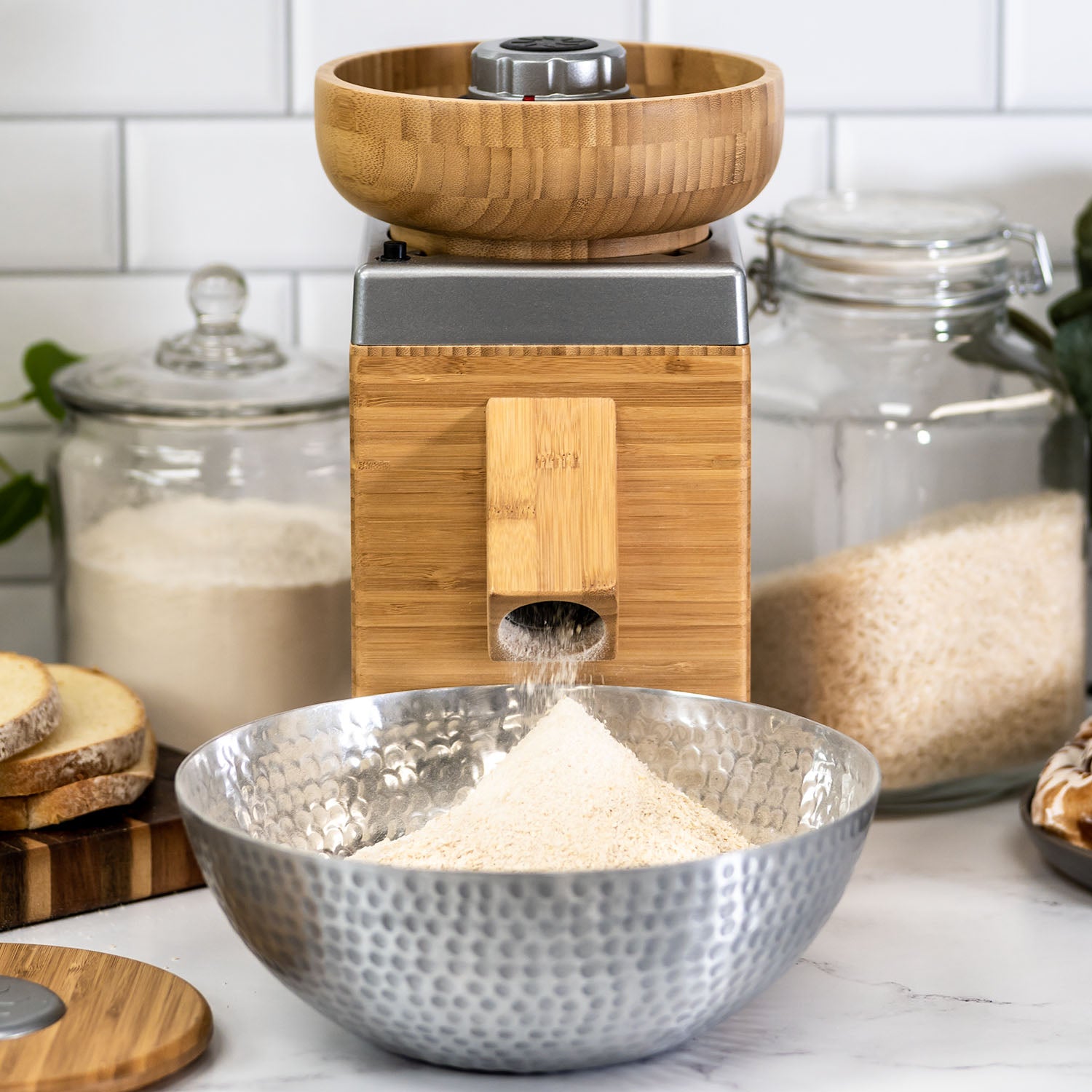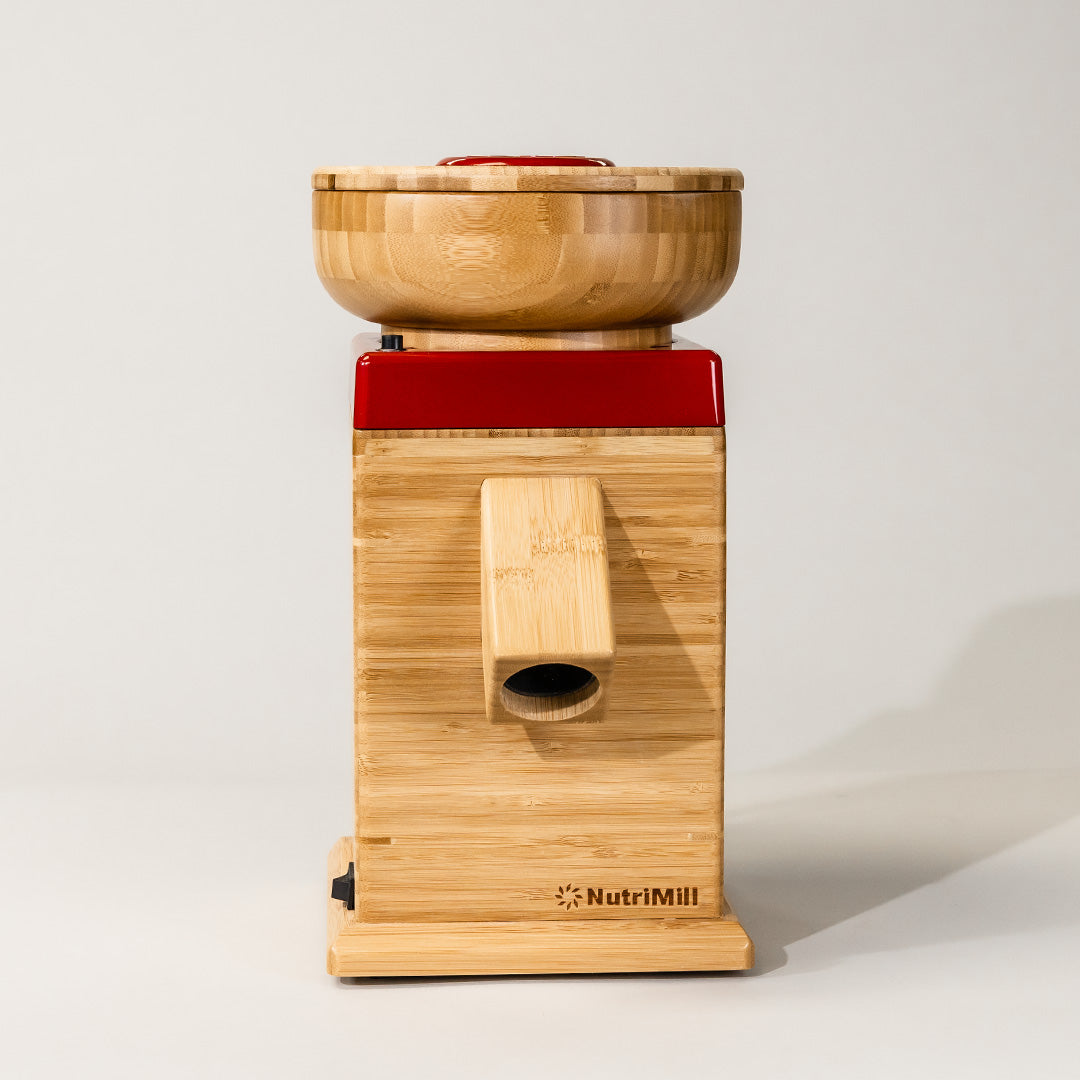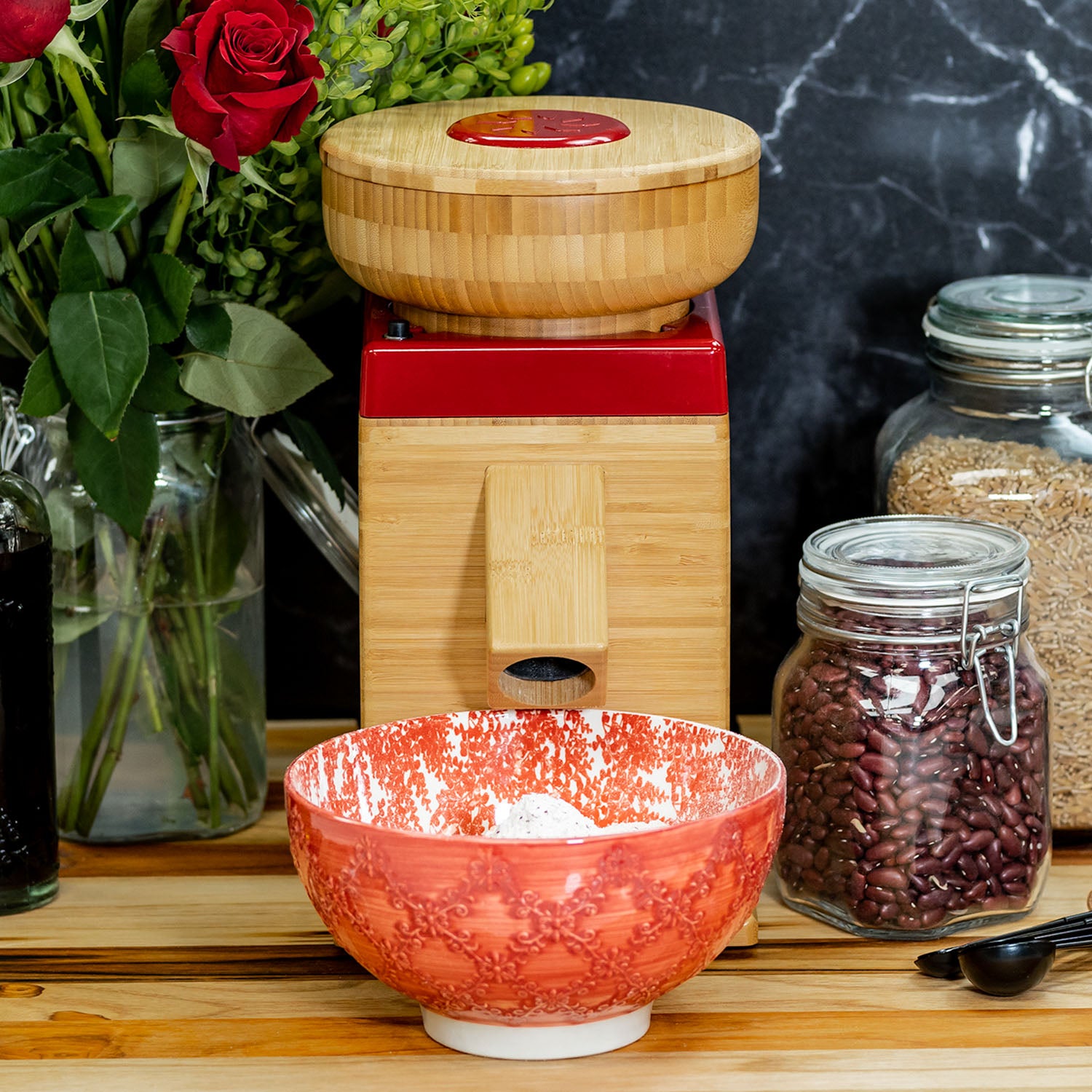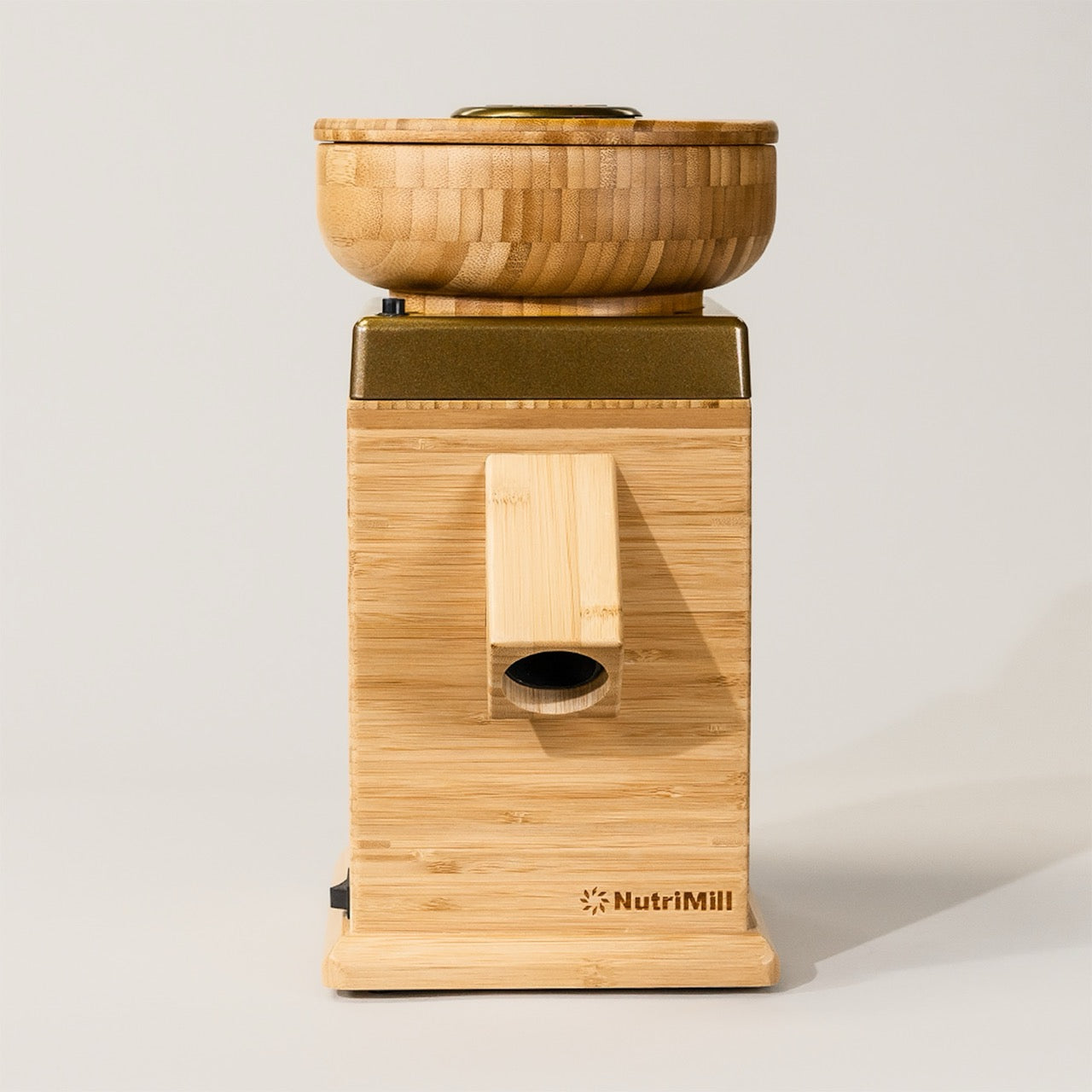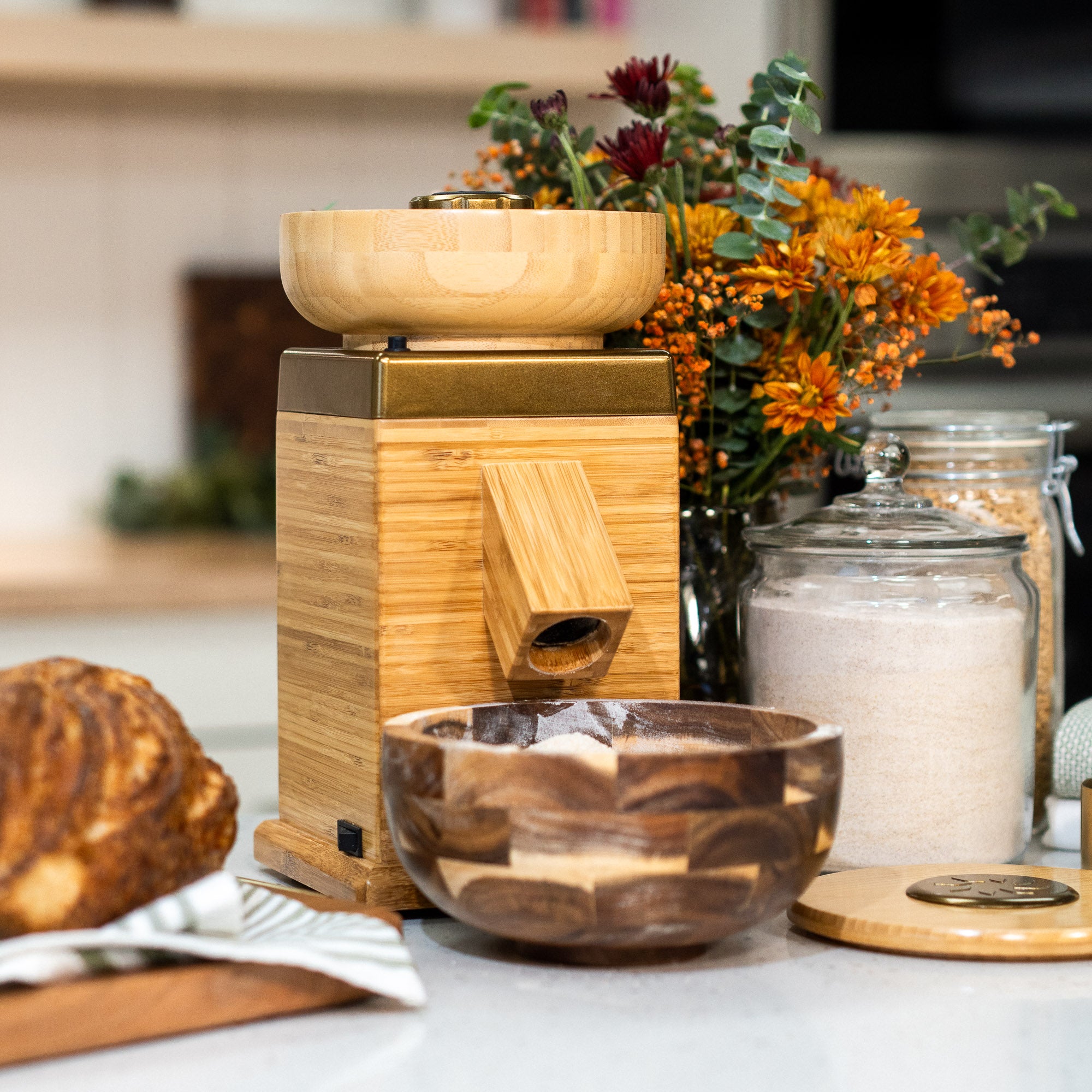Shop Grains Here
In recent years, the world has witnessed an escalating conflict between Russia and Ukraine over grain exports. This ongoing battle for dominance has far-reaching consequences for global food security. Understanding the Ukraine-Russia Grain War and its historical context is crucial. Additionally, analyzing Ukraine's position in the global grain market and assessing the potential impact of the conflict on the global food supply are essential for making informed decisions about grain production and consumption. One such decision is the ownership of a grain mill, which offers numerous benefits, including achieving self-sufficiency in grain production and reaping economic advantages. In this article, we will explore the importance of owning a grain mill in the midst of the Ukraine-Russia Grain War, as well as discuss how to choose and use a grain mill. Furthermore, we will examine the future of grain production and milling, highlighting the role of individual consumers in the grain market.
Understanding the Ukraine-Russia Grain War
The Ukraine-Russia Grain War is a complex conflict rooted in historical tensions between the two nations. To comprehend the current state of affairs, it is vital to delve into the historical context of the grain war.
The Historical Context of the Grain War
The longstanding historical ties between Ukraine and Russia make their grain trade highly significant. Ukraine has traditionally been known as the breadbasket of Europe, providing a substantial portion of the continent's grain supply. The fertile soil and favorable climate in Ukraine have allowed for the cultivation of various crops, with grains being the most prominent.
However, the region's history is marred by political and economic struggles, including periods of occupation and the devastating effects of collectivization and famine in the 20th century. These challenges have shaped the Ukrainian agricultural landscape and have had a lasting impact on the country's ability to produce and export grains.
Amidst this complex history, issues of national identity and territorial disputes have emerged, exacerbating tensions between Ukraine and Russia. The historical ties between the two nations have often been a source of contention, with both countries claiming ownership over certain territories and resources. These disputes have further fueled the conflict in the grain trade, as each nation seeks to assert its dominance and protect its interests.
The Current Situation: Russia's Escalation
Escalating tensions between Russia and Ukraine have resulted in Russia imposing restrictions on Ukrainian grain exports. This aggressive move aims to secure Russia's own grain supply and exert control over the region's grain market. By limiting Ukraine's ability to export grains, Russia seeks to weaken its neighbor's economy and assert its dominance in the agricultural sector.
These actions have far-reaching consequences for global food security. Ukraine's grain exports play a crucial role in meeting the world's demand for staple crops. Any disruption in the supply chain can lead to price volatility and potential food shortages in various parts of the world. The Ukraine-Russia Grain War, therefore, has implications that extend beyond the borders of these two nations.
Given the significance of Ukraine's grain exports and the susceptibility of the global food supply chain to disruptions, it becomes evident that owning a grain mill is of utmost importance for individuals and communities seeking to mitigate the impact of this conflict. Localized production and self-sufficiency in grain processing can help reduce reliance on external sources and provide a buffer against the geopolitical uncertainties surrounding the grain trade.
The Role of Grain in Global Food Security
Grain plays a vital role in global food security, making it crucial to assess the implications of the Ukraine-Russia Grain War on the global food supply.
Grain, a staple food for billions of people around the world, provides essential nutrients such as carbohydrates, proteins, and dietary fiber. It is a key component in the diets of many cultures and is used to make a wide range of products, including bread, pasta, and cereals. The availability and affordability of grain have a direct impact on the well-being and food security of individuals and communities worldwide.
Ukraine's Position in the Global Grain Market
Ukraine is one of the world's largest grain exporters, serving as a key player in the global grain market. Its rich black soil, known as "black earth," provides fertile ground for high-quality grain production, making Ukrainian grain highly sought after.
With its favorable climate and vast agricultural lands, Ukraine has been able to establish itself as a major player in the international grain trade. The country's agricultural sector employs a significant portion of its population and contributes significantly to its economy. Ukrainian grain exports have been instrumental in meeting the global demand for food and ensuring food security in various regions.
Considering Ukraine's role as a major grain exporter, any disruption to its grain exports due to the current conflict will have widespread repercussions on the availability and affordability of grain globally. This can lead to a domino effect, affecting not only the countries directly involved in the conflict but also those that rely on Ukrainian grain imports to meet their own food needs.
Potential Impact of the Grain War on Global Food Supply
The Ukraine-Russia Grain War poses risks to global food security. As Russia restricts Ukrainian grain exports, there is a potential for a shortage in the global grain market, leading to price hikes and food scarcity.
Food scarcity, in turn, can have severe consequences for vulnerable populations, exacerbating hunger and malnutrition. It can also lead to social unrest and political instability in regions heavily dependent on grain imports. The interconnectivity of the global food system means that disruptions in one part of the world can reverberate across continents, affecting the food security of millions.
Recognizing the potential risks associated with relying heavily on external grain sources, individuals and communities have started exploring alternative solutions to ensure their own food security. By owning a grain mill, individuals can take active steps towards ensuring their own food security and reducing reliance on external grain sources. The ability to mill grain at home empowers individuals to safeguard against potential disruptions in the global food supply chain.
Furthermore, investing in sustainable agricultural practices, such as regenerative farming and diversified crop rotations, can help build resilience in the face of future challenges. These practices promote soil health, conserve water, and reduce the reliance on synthetic inputs, ultimately contributing to long-term food security and environmental sustainability.
In conclusion, the role of grain in global food security cannot be overstated. The ongoing Ukraine-Russia Grain War highlights the interconnected nature of the global food system and the potential risks associated with disruptions in grain exports. It is imperative for governments, international organizations, and individuals to work together to find sustainable solutions that ensure the availability and affordability of grain for all, thus safeguarding global food security for future generations.
The Benefits of Owning a Grain Mill
Amidst escalating tensions in the Ukraine-Russia Grain War, owning a grain mill offers numerous benefits that extend beyond the immediate conflict.
Achieving Self-Sufficiency in Grain Production
Owning a grain mill allows individuals to produce their own flour, enabling them to achieve self-sufficiency in grain production. By milling their own grain, individuals have greater control over the quality and nutritional value of their flour, ultimately leading to healthier and more sustainable food choices.
Imagine waking up to the aroma of freshly baked bread, made from flour that you milled yourself. The satisfaction of knowing that you played a part in the entire process, from growing the grain to enjoying the final product, is unparalleled. With a grain mill at your disposal, you can take charge of your own food production and become more self-reliant.
Not only does milling your own grain give you control over the final product, but it also allows you to experiment with different grains and create unique blends. You can explore ancient grains like spelt or kamut, or even experiment with gluten-free options like quinoa or buckwheat. The possibilities are endless, and owning a grain mill opens up a whole new world of culinary exploration.
Economic Advantages of Home Grain Milling
In addition to the benefits of self-sufficiency, home grain milling offers economic advantages. By purchasing grains in bulk and milling them at home, individuals can save money in the long run. Moreover, milling one's own grain reduces reliance on expensive pre-packaged flours, offering significant cost savings.
Imagine the savings you could achieve by purchasing grains in large quantities directly from farmers or cooperatives. By cutting out the middleman and milling your own flour, you can significantly reduce your grocery bill. The initial investment in a grain mill may seem daunting, but the long-term savings make it a worthwhile endeavor.
Furthermore, owning a grain mill allows you to take advantage of seasonal fluctuations in grain prices. You can stock up on grains when they are abundant and cheap, ensuring a steady supply of affordable flour throughout the year. This not only saves you money but also gives you peace of mind, knowing that you have a reliable source of food even in times of economic uncertainty.
Additionally, by milling your own grain, you can reduce food waste. Instead of buying pre-packaged flours that often come in large quantities, you can mill just the amount of flour you need for a particular recipe. This way, you can minimize waste and ensure that every grain is put to good use.
In conclusion, owning a grain mill goes beyond simply grinding grains. It empowers individuals to take control of their food production, promotes self-sufficiency, and offers economic advantages. So why not invest in a grain mill today and embark on a journey of culinary exploration and self-reliance?
How to Choose and Use a Grain Mill
Choosing the right grain mill is essential to ensure efficient and effective home grain milling. With various types of grain mills available, understanding the options and selecting the most suitable one is crucial.
When it comes to choosing a grain mill, there are several factors to consider. One of the first things to think about is the type of grain mill that would best meet your needs. There are manual mills, electric mills, and stone mills available on the market. Each type has its own unique advantages and considerations.
Manual grain mills are a popular choice for those who prefer a more traditional approach. They are usually operated by hand and require physical effort to grind the grains. These mills are often compact and portable, making them ideal for small spaces or for those who like to take their milling on the go. However, they may not be as efficient or fast as electric mills.
Electric grain mills, on the other hand, are powered by electricity and offer a more convenient and efficient milling experience. With the push of a button, these mills can grind grains effortlessly, saving you time and energy. They often come with adjustable settings, allowing you to control the fineness of the flour produced. However, they can be larger and bulkier than manual mills and may require a power source.
Stone grain mills are another option to consider. These mills use stone grinding wheels to crush and grind grains, resulting in a flour that retains more of the natural nutrients and flavors. Stone mills are known for producing flour with a slightly coarser texture, which some people prefer. However, they can be more expensive and require more maintenance compared to other types of grain mills.
Once you have chosen a grain mill, it is important to familiarize yourself with proper milling techniques. Successful home grain milling requires a few key tips and tricks to achieve the best results. Firstly, selecting the right grain variety is crucial. Different grains have different characteristics and milling requirements, so it's essential to choose the right grain for your desired end product.
Properly adjusting the mill settings is also important for achieving the desired flour consistency. Whether you prefer a fine flour for baking delicate pastries or a coarser flour for heartier bread, knowing how to adjust the mill to achieve the desired result is essential. This may involve experimenting with different settings and grain types to find the perfect balance.
Regular maintenance of the grain mill is another key aspect of successful home grain milling. Keeping the mill clean and well-maintained ensures optimal performance and longevity. This may involve cleaning the mill regularly, oiling any moving parts, and inspecting for any signs of wear or damage. By taking proper care of your grain mill, you can ensure that it continues to produce high-quality flour for years to come.
In conclusion, choosing and using a grain mill requires careful consideration and attention to detail. By understanding the different types of grain mills available and considering factors such as grain capacity, milling speed, ease of use, and the type of grains that can be milled, you can select the most suitable mill for your needs. Additionally, familiarizing yourself with proper milling techniques, such as selecting the right grain variety, adjusting the mill settings, and maintaining the mill, will help you achieve the best results in your home grain milling endeavors.
The Future of Grain: Adapting to a Changing World
The Ukraine-Russia Grain War serves as a wake-up call for the agricultural industry and individual consumers alike. In the face of changing world dynamics, it is imperative to explore innovations in grain production and milling.
Innovations in Grain Production and Milling
To adapt to a changing world, farmers and millers are embracing technological advancements in grain production. These innovations aim to increase yields, improve grain quality, and promote sustainability. From precision agriculture techniques to the development of drought-resistant grain varieties, ongoing research and development are reshaping the future of grain production.
The Role of Individual Consumers in the Grain Market
As individual consumers, we play a significant role in shaping the grain market. By choosing to own a grain mill and support local grain producers, we can contribute to a more sustainable and resilient food system. Additionally, reducing food waste and embracing whole grains can have a positive impact on both personal health and the environment.
While the Ukraine-Russia Grain War presents challenges to global food security, it also presents opportunities for individuals to take control of their grain supply. Owning a grain mill offers a pathway to self-sufficiency, economic advantages, and a sense of security amidst uncertain times. By understanding the historical context, current situation, and potential impacts of the grain war, individuals can make informed decisions about grain production and consumption. As we navigate a changing world, innovations in grain production and milling, coupled with individual actions, can shape a more sustainable and resilient future for global food security.

